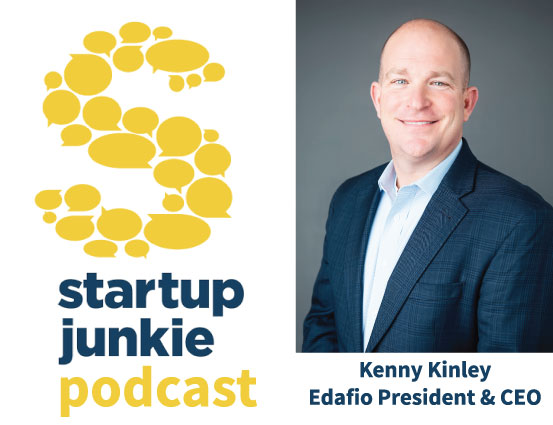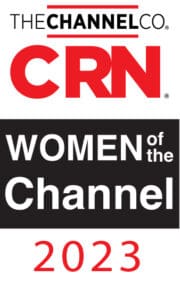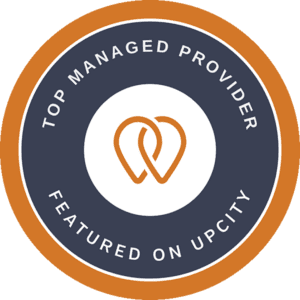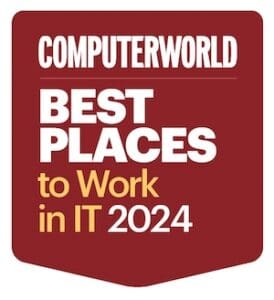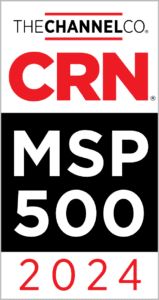LISTEN TO THE PODCAST HERE:
The Startup Junkies welcomed Kenny Kinley on their 282nd episode! Kinley is the CEO of Edafio Technology Partners and has proven leadership experience in broad roles such as IT, sales, marketing, account management, and more. It was a pleasure to discuss all things tech with him on this episode!
Like many entrepreneurs, Kinley initially did not choose this field. During his senior year of college at the University of Central Arkansas, he realized that account management was not for him. At the time, Axiom was hiring college graduates of any background and thus took a chance on him. Kinley would gain knowledge, leadership opportunities, and experience working with Fortune 100 clients from all across the country for his 15 years with Axiom.
When the travel and work became too much for Kinley to juggle alongside a growing family, his entrepreneurial journey began. He would become associate number 13 at Edafio Technology Partners, which now employees for 110 associates. Kenny shared how his experience and skill sets landed him to where he is today as President & CEO of the largest managed service provider in the state.
READ THE INTERVIEW HERE:
Caleb Talley: It is our absolute pleasure to introduce our guest to our startup junkie podcast today, Kenny Kinley. He is president and CEO of Edafio Technology Partners with proven leadership experience and broad roles from IT, sales and marketing, account management and many others. Kenny, how are you doing today?
Kenny Kinley: All right. Thank you guys for having me.
Jeff Amerine: We’re glad to have you on the show. Why don’t you give us a little bit of your Wolverine-like origin story?
Kenny Kinley: You bet ! I will be glad to. I was born and raised in Arkansas and graduated with an accounting degree from Central Arkansas. I had these aspirations to be an accountant like my father, and I quickly realized that was not for me in my senior year of college. I was fortunate back then a company called Axiom Corporation was hiring college grads in any degree, so I jumped on! I graduated from UCA on a Saturday and started with Axiom on Monday and quickly realized that I was not technical enough to be a developer or database administrator or any of those cool roles back in the day. Still, I was able to find myself in a leadership role early on. I found I could lead client engagements and technical teams very well. After spending 15 years at Axiom, I was fortunate to have learned so much and have the opportunity to work with Fortune 100 clients all across the country. I also quickly realized that travel was challenging with a young family. I came to crossroads where I knew it was time to get off the road and spend more time at home. I joined Edafio ten years ago in January as associate #13, where I was brought in to lead the sales organization as well as lead one of our more significant client engagements. I was fortunate to be along for the ride and watch things grow.
Jeff Amerine: Tell us about Edafio. Give us a little more about what Edafio does and where you are today?
Kenny Kinley: Edafio is a technology services company at the highest level. We help our clients run, grow and protect their businesses. We started 22 years ago as a managed service company, which means we help clients keep their systems up, running, patched and updated. However, over the last five or six years, we have been fortunate to add a cybersecurity division to help keep our clients’ businesses secure. We also have a cloud practice, which has grown over the past several years. Our private cloud offering is for clients who aren’t quite ready to embrace the public cloud. However, we see more and more are embracing public cloud services like Azure. We also offer a full-service Microsoft Suite, especially over the last couple of years as we’ve moved to remote work environments. We find more of our clients want to do more than Microsoft 365 or email. Now we help them with other collaboration tools.
We’ve been fortunate to start in managed service but continue to branch out into other places like cyber, cloud and M365.
Caleb Talley: I understand Edafio also works within the healthcare industry. I was looking at the website, and a portion highlighted value-based healthcare. and was curious if you could elaborate on what that means for a novice like me?
Kenny Kinley: We were fortunate to get into the healthcare space eight or nine years ago, right about the time when a lot of requirements for electronic health record systems from government agencies were coming down.
Many hospitals and clinics systems were not equipped to deploy these health record systems and everything related. We were able to get in on that early and help hospitals and large systems deploy those health record systems and keep them up and running. And then also figure out how to use them to maximize their compliance programs.
At one point, healthcare was probably 75% of our business. We’ve seen that come down the last couple of years, just because some of these other industries are catching up to healthcare’s IT, cybersecurity and cloud needs. Today, healthcare is probably just a little over two-thirds of our business, but we have a significant healthcare presence. One of the things I didn’t mention was we have a healthcare consulting practice. We have several consultants on our team who can offer value-based healthcare guidance. They help clinics and hospitals with their programs to facilitate chart reviews and HIPAA training that helps them become more equipped to handle all these vast complex government programs.
Davis McEntire: If you don’t mind, can you share the little origin of the Cadron Creek Capital Investment Fund and how it started?
Kenny Kinley: Cadron Creek Capital started with a breakfast meeting at Bob’s Grill in Conway with Jeff Standridge and me. And, you know, it was part of an overall strategy to start a financial acumen ecosystem within UCA and in Conway. That’s really where Cadron Creek’s idea started. It was a part of that overall strategy that Jeff and others have worked on. We had several meetings and brought our friend David Grimes in to help us launch it, and that was a great learning experience on what an angel seed fund would look like and putting it together from the ground up. Our initial target was to raise half a million dollars, and we ended up with an initial fund of over 1.5 million. It went well, and has had some excellent success through that fund. And as I mentioned to Jeff earlier, we still got several from that initial event that we think could be a success in the future. So a great learning experience for me, and thankful to have that opportunity.
Jeff Amerine: Yeah, that was one of the more engaged groups too. I was in that fund, but not one of the managers. It was always good to see the level of engagement for a first fund out of the blocks in that Conway area. And some great people are involved with it as well.
Kenny Kinley: You guys are taking it to the next level for sure. We were worried about how much we would raise that person calling us. On the last day, my former neighbor across the street knocked on the door and said, Hey, I heard about this. Can I write you a check? We were just overwhelmed by the amount of support for it, and it showed that there was a real need for that in Arkansas.
Caleb Talley: Speaking to that need and what you have learned in that process, Can you share any aha moments for others interested in getting involved in something like that?
Kenny Kinley: I think it recognized the different parts you needed to make a thriving ecosystem because you tend to focus on the startup people and these entrepreneurs and what I realized is I would watch the pitch, right? We’d have these people come in, and I would spend about the first half of their pitch admiring them and figuring out how I could help. And then the last pitch it would be, there’s no way I could do. What I learned was you have got to not only have the entrepreneurial spirit, but you’ve also got to have the programs from the state and other people to help fund it. Then you have got to have investors. I realize how many different people it took to make a successful system. As much as I admire those guys, I realized that I would be better off on the investor side. That is the way I’m wired, and I love that. If any of those guys need help, advice, or funding, that’s a great place to be. I realized I was envious, but there was no way I could do it.
Jeff Amerine: To that end, you’ve also had experience more recently with a little bit later stage capital with the private equity side. I know we have many listeners who have gone through the early stage. Maybe they’ve gone through a seed round and whatnot, but there’s still an element of mystery about it. At what point does a private equity fund come to play? And how does all that work? Would you mind talking a bit about how all that came together and how it works? Any advice you have?
Kenny Kinley: Sure. It’s been a tremendous learning experience going through this. For Edafio, we’d been around, as I mentioned, for 22 years, and we have grown organically through relationships and client referrals. But we realized last year to continue to grow and invest in things, we needed to offer better cybersecurity and a 24/7 NOC center through growth or acquisition. We had a list of things that we wanted to do. Our founders and owners thought they were great ideas but weren’t willing to make that significant investment. That is when we realized, okay, to do the things that we need to do, we would have to find an outside partner, which was the trigger for us. When you get to a point where you have to make a significant investment to take a business to the next level. At least it is one option to find an outside partner. We were fortunate enough to go through the process. with a broker who knew about MC PArtners in Boston and we just hit it off from the beginning. They have a similar vision as us, so it worked out great in for us.
Jeff Amerine: And I think that’s good news because you always hear all kinds of stories about when you get to the private equity stage. I believe that finding that cultural fit, where it’s people you’re going to enjoy working with and there’s good alignment and objectives. So congratulations.
Kenny Kinley: I think that would be one piece of advice, Jeff, I would give someone going through that process is to spend some time upfront defining what you want out of that partner.
What’s important to you?
We built that list. Initially, I made the list of essential things to me and then went to our board and said, Okay, guys, here’s what I think is necessary. We had our list of items and worked with a broker before talking to potential partners. We were able to say, Look, these are our core needs. If it’s outside of these things, then iti is not going to be a fit. Do not jump into it just looking for an investment partner no matter what. Build out what you think is essential first. That was a critical piece for us. Fortunately for us, as I said, one of the first groups we talked to checked all the boxes. But from other friends that have done this, it’s usually a little bit more of a drawn-out process.
Jeff Amerine: Do you see the strategy going forward as one where you’re building new services, and you’re geographically expanding? Or is it also going to be looking for acquisitions as you move forward?
Kenny Kinley: It is both. I mean, the way we’ve defined the growth plan now is we’ve grown organically and invested in a sales team slowly. So for us, it’s a three-pronged approach. Whichi includes more investment in our salesteam. We plan to double the size of our sales force this year. It’s what we did before, but we’re just going to do it faster. The second is through acquisition. Our vision is to build a regional platform in Arkansas and the adjoining states. Not only for things that compliment us for what we do today but also grow in areas and emerging technology we want to move into. And then, the third piece is trying to figure out more of the channel sales opportunity. That is something we’ve dabbled with in the past and have had limited success. We think there’s an opportunity around the channel and having partners that can help us reach more clients. That’s the strategy.
Davis McEntire: Kenny, you said you’re doubling your sales team in a lot less time. What does that look like to you? Is it training them on culture and keeping the culture similar? Talk to us a bit about that.
Kenny Kinley: I think that’s probably the challenge overall for us, Davis, to continue finding talent and bringing on individuals that meet our core values that can amp up quickly. The part that many companies are struggling with right now. Whether it’s a sales role, back office or an engineering role. I think that’s it. We have a great recruiter. She does a fantastic job screening candidates on the front end, and we send them through a rigorous recruitment process. It’s an extensive personality assessment program that takes a couple of hours. We found that that is very indicative of success. Then they go through multiple interviews and Team interviews. We take our time through that process, and that’s just something we’ve got to do. Even though now we’ve got to add people faster. We hired 27 People in 2021, and we’ll probably add between 35 and 40 in 2022. We can’t lose that diligence on the process because you hire too fast and hire the wrong people. And instead of hiring 35, you’re going to have to hire 45. So it’ll be on us to ensure we do it methodically.
One of the good parts of the recruiting front is our openness to hire anywhere. The good news is there will be more candidates. The bad news is the competition’s ripe. Everyone else is doing that too. For example, we’ve got 14 Associates in our Northwest Arkansas office. I say office; they’re primarily remote like everyone else, but being able to say, Okay, how do we grow there and not just in Central Arkansas? We’ve had folks from the last two years who have moved. We’ve got people in Atlanta, South Carolina, Florida, and Dallas. And it’s shown us that to recruit in specific geography unless it’s just something that a client needs on-site, we can recruit anywhere and onboard people anywhere. We’re going to have to embrace that to continue to grow.
Jeff Amerine: It gives you a lot larger pool to draw from, and you don’t have to worry necessarily about relocation costs. People are living where they want to live. How does that make you think about office space expansion? What’s that look like now that we’re in this hybrid world at best? I would say post-pandemic but almost post-pandemic.
Kenny Kinley: In the fall of 2019, we had plans to expand all three offices. So we had the plans drawn up to build the other half of our North Little Rock office. We were going to double the size of Conway, and we were looking at a larger space in our Rogers office in Hunt tower. All three offices were full. We couldn’t find a place to park. So we were looking at plans for all three as we went into 2020, and then you know, March 2020 happens, and everybody goes home. We’ve seen the need for physical office space. It’s just a lot lower. We must have room for people to come in and have somewhere to work. Hopefully, we get through this to be in the office more together. But I think for us five days a week in the same office. I don’t think we’ll ever go back.
And you know, what I found that’s interesting Jeff? Is it depends on the CEO. I’ve got some old-school friends who want all their people in the office. Some of our clients never went remote and stayed in the office every day. Our clients that are hospitals, we have to be on-site. I think it’s based on the company and what the CEO embraces and values. And so, while personally, I don’t work well from home, I end up in the pantry with a fistful of Fritos multiple times a day. But for me, I need to be in an office. I would say most of our associates have embraced the hybrid work. I do quarterly roundtables with about ten people, and we just finished our last one yesterday. Ninety-plus percent of our people were at home. We need to be able to embrace that for a technology company. We won’t go back to five days a week.
Jeff Amerine: Yeah, that’s a common theme. We’re hearing some of the CTO or CIO level folks we talked to say that you can’t afford to mandate people to come back as a corporation. Particularly the high-tech people, because they’ll leave and make 25% more elsewhere if you’re not careful. That the war on talent is real, as you think about it. That’s a good segway into the HR piece. We talked about how careful you are in hiring and whatnot. How are you finding that war that everybody’s going through to keep and retain the best people? How are you guys managing through that?
Kenny Kinley: It’s tough. I mean, it’s a challenging process to go by, especially at that senior experience level, because it’s so competitive. Still, we just do the traditional search. We’ll embrace that if we find an agency to help us with specialized skills. The thing we’ve done the most, and this was even pre-pandemic, was we’ve got a reasonably robust college intern program. We call them Junior associates because we learned they don’t like to be called interns, so we call them Junior associates. But we recruited heavily from the colleges and bring them in for either summer internships or even during the semester, and we put them to work. I mean, we’ll put them to work at our help desks are on-site with clients. As those people graduate, we bring them on and promote up as much as possible. We can’t hit our growth targets by doing that alone, but we’ve got some bright associates that have come up through that intern program. We will have to partner with colleges like the U of A. We do a lot with UCA in Conway and talk to different colleges, especially as they build out these cyber and other tech-related programs.
That’s going to be a huge part of our growth.
Jeff Amerine: The other thing that occurs to me is that you’ve got this breadth of managed services you do, and the pandemic pushed everybody home. Did that also allow you to create new service offerings because where your clients’ workforce is sitting is different? They needed other things, or how is that part of it been?
Kenny Kinley: There was more of an openness to doing things, as you know, a Microsoft Team’s migration or a move off of local drives to SharePoint. There was more of an appetite to do that than there was before. That’s probably the most significant thing, and it’s been a little easier to have those cybersecurity discussions to say, Okay, you got people spread out. We need to make sure we’re monitoring your network. So, I’d say there was more of an openness to it.
The other part of it that’s been interesting is the first six months. From a new business perspective, everything just kind of stopped, right. Nobody wants to talk to anybody about making a change in IT. But now, our ability to build those relationships virtually and not have to be on-site as much in the sales process. I think there’s a more considerable openness to that too. You still need to meet the people and have the relationships, but instead of four or five face-to-face meetings, there may be one or two, and then the rest of it, you can do virtually. That’s been a change as well. And I don’t think that’ll go back. I think people just embrace that even more.
Jeff Amerine: Yeah, we’ve seen that a lot of people have said that, and so they start looking at their p&l, and they look in the rearview mirror, it’s like, why don’t we spend all that money on travel and lodging when maybe 80% of that could be done virtually. It doesn’t mean that you eliminate the face-to-face element. Still, you can do an awful lot of business development just like we’re talking about here and get to know people pretty well.
Kenny Kinley: Absolutely.
Caleb Talley: Thinking about the cybersecurity element. What are you speaking to with people being remote? What are some things people need to be mindful of as their workforce is virtual and they’re dealing with sensitive materials?
Kenny Kinley: We talk to our clients about having some basic rules of engagement for working remotely around:
- how you handle sensitive information
- where you store things on your laptop versus in a cloud setting
- how you email item
- making sure they’re encrypted or not.
When you’re in a home environment, things are different. You’re just naturally looser. It is having conversations with our clients, ensuring they are doing regular training and keeping security top of mind. We’re still having discussions with many clients looking at cyber insurance, and in today’s environment, it is just required. I mean, you just have to do it. I think remote work plays a role, and some of it’s just the nature of cyber and the breaches that you read about almost daily.
The things that used to be nice to have are now things you have to have. We’re in an exciting place in our business. At some point, choosing not to have cyber insurance or multi-factor authentication for their critical applications will not be an option anymore. They’re going to be required.
Jeff Amerine: Kenny, are you guys also going down the road of all the privacy-related stuff? I know we know there are emerging privacy regulations coming down. You got GDPR coming out of the EU, and there are all kinds of stuff going on in nearly every state and Asia that has its own set of standards. How are you looking at the privacy side of things?
Kenny Kinley: We’re trying to stay on top of it for our clients the best we can now. Given the health care presence, we are pretty savvy in that space around HIPAA, but we’re getting more and more questions on that. Our healthcare consulting teams are becoming more of a privacy and compliance team. We’ll have to continue to evolve in that space because our clients are asking those questions.
Davis McEntire: A lot of our listeners are entrepreneurs and startups. What are three things or four things you recommend regarding cybersecurity?
Kenny Kinley: We typically start with any client we’re talking to, regardless of size, to do just a basic assessment of their setup. It’s hard to say the three things to do because they’re all different. They may be an E-commerce business, or they may have old legacy systems sitting in an old server under somebody’s desk. I would recommend just a basic cybersecurity assessment from a reputable provider. We do that, but there are a lot of other good companies around that do those things. Get the basics covered because it’s so complicated now. I think about even my early days at Edafio when we had engineers who could be experts on all things systems, networks and security that were pretty basic by them.
Today, technology is so specialized now. You almost have to get somebody from the outside to come in and see where the gaps are, and that doesn’t have to be expensive, especially if you’re an entrepreneur and a startup. It doesn’t have to be a significant expense, but it’s money well spent to have an outside company come in. Now, it’s more than just running scans, vulnerability tests and pin attack paths. It’s gotten so much more complicated. So that’d be my recommendation is get a basic cyber assessment. We recommend it at least once a year because as your business grows and evolves, you add more applications, more people, more locations. That’s an essential step.
We’ve got more and more clients open to going on the offensive rather than wait and see. We’ve been talking to them about it for a while, and some of our larger clients, especially hospitals, have embraced it. But you are right, and it’s becoming more and more prevalent, even in smaller businesses. We’ve offered that for a while, although our clients may not have initially been as willing, now understand the importance of investing in cybersecurity. Like cyber insurance or multi-factor, it will eventually be a requirement for every business.
Jeff Amerine: In a more general sense, Kenny, as you look at the future of Edafio, are there are some technologies or services that you’re excited about that you see as possibilities for Edafio in general? What do you see kind of on the horizon related to technology? Innovations that you think will be game-changers for the clients you serve?
Kenny Kinley: I think that’s one of our opportunities, Jeff, is to help our clients stay on top of all technology and cyber-related services. There are so many different cyber offerings and end-point solutions out there. The time and energy to keep current is a challenge for businesses. I think it’s inspiring on that front. And not only cyber but also the applications. Whether it’s Microsoft, NetSuite, ServiceNow or Salesforce, many companies like us are moving into more of that application layer and helping clients keep those systems up but also helping them optimize them. There is a real growth opportunity for companies like Edafio. And we’ve seen that in the health record space. We’ve got a pretty high level of expertise in health record systems to help our clients manage.
It used to be in the managed service space; you stayed away from the applications. Your job was to keep them up, and you stayed away from that layer. I think those days are over; we’re going to have to embrace them and become more consultative with our clients to help them use them.
Jeff Amerine: You know, you felt this level of expertise in the EMRs and that whole infrastructure. There’s still a lot of interest in personalized medicine and what we call PHR for a while. Your biometric data and then taking wellness and your wellness data into your own hands. How do you see that individual side going, and how do you advise your clients about that? How to use that? I wonder how the healthcare clients think they can make the patient a more active participant.
Kenny Kinley: We talked about telehealth for years and years, and it took a pandemic right to make people open to it, and it’s drifted back a little bit. You could tell people are still drifting back, and there’s not as much telehealth as there was 12 months ago, but that’s my hope on personalized medicine too. We need something to trigger that the patients ultimately have to adopt. We think it will depend on patient demand, but it’s coming that way. When things like that happen, we want to help our clients. For example, one of our clients wanted to pivot to telehealth, and we found a vendor to set up telemedicine rooms in days. We want to be that partner and extension of that client to help make those things happen. So as that space evolves, we’d love to be a part of that.
Caleb Talley: If you were able to go back in time and look in your crystal ball, whether that be before Axiom or before Edafio and give your younger self advice based on everything you know now, what might that advice be?
The first thing would be to enjoy your hair a little bit, but my wife’s had a harder time with that than I have.
Kenny Kinley: No, I would go back and tell myself, don’t worry about what other people think. I mean, it is just a vicious cycle. I’m a pleaser. I still struggle with it. But you know, you just got to do the right thing and do what you think is right with the information you have. But I tell myself not to worry so much about what people think about you and mentorships, relationships and what you read. Try to soak up all the information you can, make the best decision possible and move forward. I’m not perfect at it, but I’m better than I was 15 years ago.
Jeff Amerine: That’s excellent advice. Where can our listeners and viewers find out more about Edafio or your story?
Kenny Kinley: The best place would be our website at Edafio.com. We’re out there on LinkedIn. That’s probably the best place, and then if you want to contact me, I’m a big LinkedIn guy. Feel free to look me up there, and I would love to connect.
Jeff Amerine: Fantastic. And Kenny, thanks so much for coming on. I mean, it’s always great to get caught up, and we’re delighted you were able to take the time with us today. We appreciate it.
